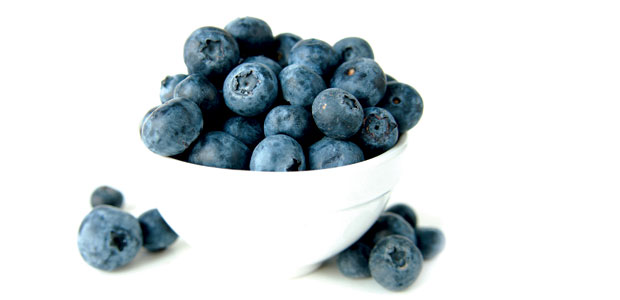Advertisement
Pick a Peck of Perfect … Fruit
There’s nothing like strolling through your local farmer’s market on a warm summer day with the fragrance of ripening fruits teasing your senses. Choosing that perfect fruit can be tricky, though, so here are some guidelines–and please remember to buy local and organic whenever you can. Blueberries Buying: Choose firm, plump berries. White powdery bloom … Continued

There’s nothing like strolling through your local farmer’s market on a warm summer day with the fragrance of ripening fruits teasing your senses. Choosing that perfect fruit can be tricky, though, so here are some guidelines–and please remember to buy local and organic whenever you can.
Blueberries
Buying: Choose firm, plump berries. White powdery bloom is natural. Ensure no moldy berries are hiding at the bottom.
Storing: Store blueberries in the fridge for up to two weeks. To freeze, spread unwashed blueberries on a baking sheet until frozen, then pack into containers.
Preparing: Wash before using.
Raspberries
Buying: Look for medium to bright red, intact berries in dry, unstained containers.
Storing: Refrigerate immediately after buying. Berries keep one to two days.
Preparing: Wash gently.
Apricots
Buying: Fruit should be orange–no green areas–with fragrant, velvety skin.
Storing: Ripen at room temperature, then store in refrigerator for a day or two.
Preparing: Wash under cold running water. Squirt sliced apricots with diluted lemon juice to keep from browning.
Cherries
Buying: Cherries are the only stone fruit that does not ripen after harvesting. Fruit should be plump, shiny, and dark (for most varieties) with stems attached.
Storing: To minimize bruising, store cherries loosely in a plastic bag in refrigerator. You can also freeze cherries on a tray (after washing), then store in freezer in a thick plastic bag for up to a year.
Preparing: Wash and handle with care as bruising can lead to browning of fruit.
Mango
Buying: The smell will tip you off on ripeness, so choose those with a sweet scent. Skin should be brightly coloured, without soft spots or bruises.
Storing: Leave fruit in a paper bag to ripen further. Refrigerate up to a week once fully ripened.
Preparing: Slice off both halves as close to pit as possible. Score in crosshatch pattern, but not all the way through the skin. Bend mango back and cut off cubes.
Melons
Buying: A ripe melon is heavy for its size. Gently push the end opposite the stem. It should be somewhat soft.
Storing: Leave melons at room temperature to ripen further. Keep cut pieces in refrigerator.
Preparing: Wash before eating. Outer skin can harbour bacteria that can enter fruit when sliced. Cantaloupes are especially susceptible to E. coli.
Plums
Buying: Skin colour can vary, so test for ripeness by squeezing. Plums should have a slight give.
Storing: Ripen further in a paper bag and store in refrigerator for three to five days.
Preparing: Fruit should be eaten at room temperature for optimum taste. Blanch skin to remove for use in recipes.




